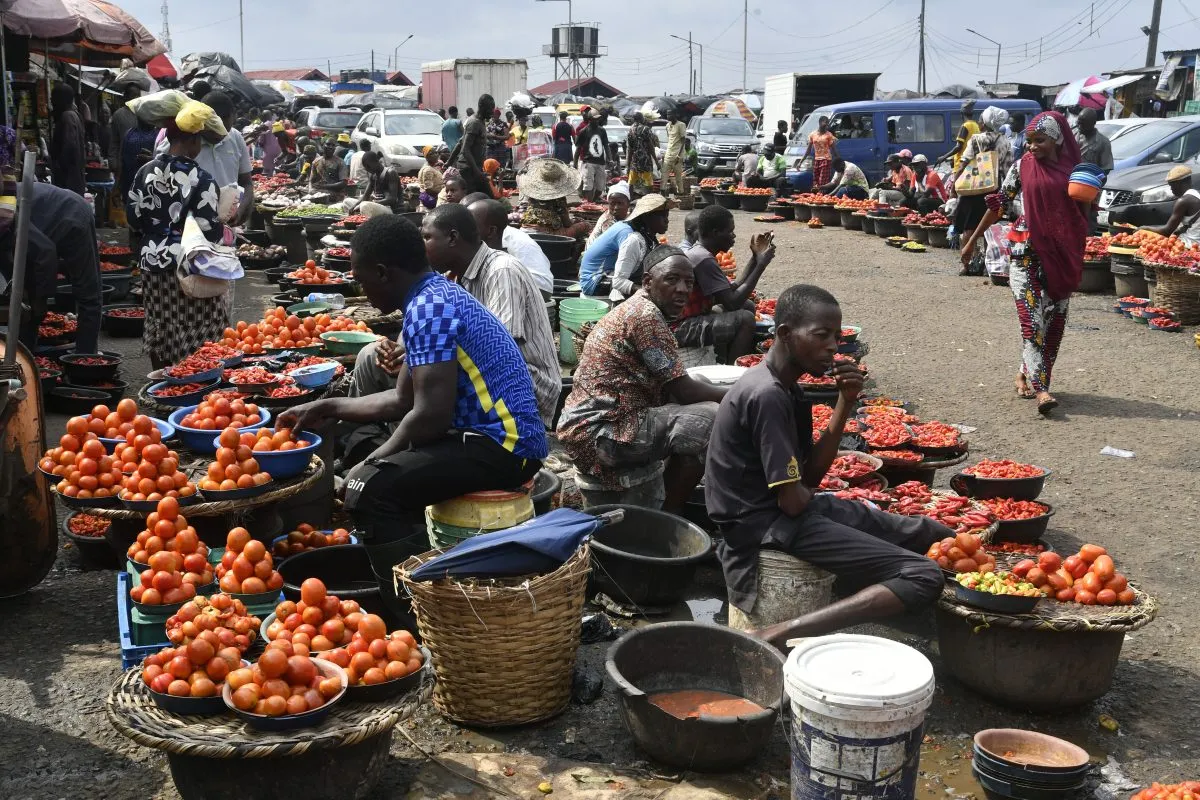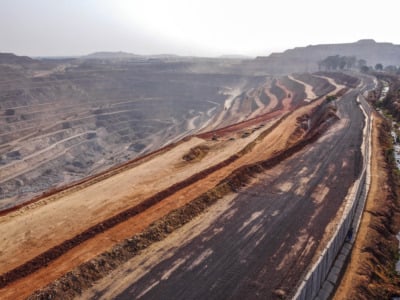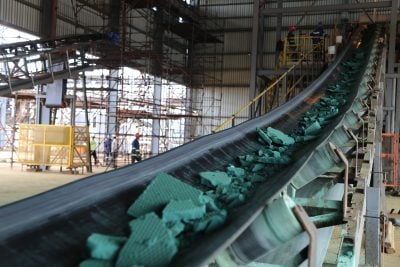Nigerians are experiencing the worst food inflation in decades amid a weakening naira, insufficient domestic agricultural production, and an over-reliance on expensive imported food.
Data from the National Bureau of Statistics showed that the annual food inflation rate was 35.41% in January, 11.9% higher than January 2023 (24.32%).
At the state level, the food inflation rate was the highest in Kogi (44.18%), Kwara (40.87%), and Rivers (40.08%), while the lowest annual rates of food inflation were recorded in Bauchi (28.83%) Adamawa (29.80%), and Kano (30.08%). It is clear, however, that food inflation is a country-wide phenomenon.
Rising inflation and slow growth have caused the number of impoverished Nigerians to rise from 89.8 million at the beginning of 2023 to 104 million, according to the World Bank’s most recent Nigeria Development Update report. The UN’s Food and Agriculture Organization (FAO) has warned that at least 26.5 million Nigerians living in the states of Borno, Sokoto, and Zamfara, as well as the Federal Capital Territory, may face a food crisis between June and August.
The Minister of Agriculture and Food Security, Abubakar Kyari, attributes rising food inflation to the depletion of food reserves, insecurity, flooding, the weakening of the naira, and supply chain disruptions emanating from the Covid-19 pandemic.
Mosope Arubayi, an economist and market strategist, says that the hardest pinch is being felt by low-income earners, whose household budgets are struggling to cover rising food expenditures.
Nationwide mass protests have taken place, including in the states of Niger, Kano, Kogi and Ibadan, to demand immediate interventions to address the rising cost of living. Without further action, there are fears that food inflation could spark civil unrest – businesses have expressed concern about a spate of looting of trucks conveying food and raw materials to market.
Naira slump continues
A falling currency is at the heart of the issue. The naira has lost about 70% of its value to the dollar since the currency peg ended last year.
After years of being artificially propped up by government policy, the naira has been devalued twice since June 2023 as the Tinubu administration attempts to close the gap with the parallel market rate. But the government’s attempts to reform the currency have led it to become the second-worst-performing currency in the world, after the Lebanese pound.
Prices for imported goods and services usually increase in tandem with the local currency’s sharp decline in value – thus the weaker naira means higher prices for food, fuel, and machinery from abroad.
Data from the National Bureau of Statistics reveal that the annual inflation rate for imported food in Nigeria increased from 18.49% in January 2023 to 26.29% in January 2024.
Food imports have increased in price as a result of the Russia-Ukraine war, supply chain disruptions in the aftermath of Covid-19, and border closures introduced by the previous Nigerian government of President Muhammadu Buhari. The country imports a significant amount of wheat, milk, and fish.
The scrapping of fuel subsidies worth billions of dollars annually has been a further driver of inflation, not least for farmers. Yusuf Ogunbiyi, a commodity trader at AFEX, says that input prices for farmers have increased by as much as 40%, a trend which is likely to negatively impact acreage and production and thus contribute to future food inflation unless brought under control.
Government response
The government says it is doing what it can to ameliorate high prices. The Tinubu administration has announced the commencement of the distribution of 42,000 metric tons of assorted grains.
Vice President Kashim Shettima says the government will boost the food supply in the near term by providing farmers and households with grain and fertiliser.
To lessen the impact on the most vulnerable households, the government is also rolling out targeted cash transfers – approximately 15 million people with lower incomes receive cash assistance of $17 a month.
Critics say they must do more.
“Policy and intervention by the government may be necessary to address the issues raised by food inflation,” Arubayi says.
The Senate has urged the government to implement a food stamp program to alleviate hardship and lower the high cost of living, and instructed the Federal Ministry of Agriculture to communicate with pertinent organisations.
Meanwhile, the Trade Union Congress has demanded that the government increase the importation of food to drive down prices.
That is contested – the IMF says the overreliance on imported foods is a primary cause of the food crisis plaguing Nigeria and other sub-Saharan African countries.
In February, Minister of Information and National Orientation Mohammed Idris said that the country will not import its way out of the crisis.
“A decision has also been taken that in the interest of our country, there will be no need for food importation at this point. Nigeria has the potential to feed itself and even be a net exporter of food items to other countries,” he said.
That was echoed by President Tinubu: “What I will not do is to set a price control board. I will also not approve the importation of food,” he said.
Instead, he said the country must look at longer term reforms.
“We must also look at the rapid but thoughtful implementation of our livestock development and management plans, including dairy farming and others,” Tinubu said.
Structural problems
Indeed, Nigeria’s agricultural sector has long suffered from deep-seated problems, not least a lack of government investment.
The Maputo Declaration on Agriculture and Food Security, a pan-African commitment made in 2003, recommends countries spend at least a tenth of their budget on agriculture, but the Nigerian government has long spent less than 1% and budgetary allocations at the state level are often even lower.
Meanwhile, non-existent and decrepit infrastructure, limited technological support, and poorly designed transport systems contribute to post-harvest losses of up to half of production in some regions. An ongoing wave of banditry, terrorism, and kidnapping across the nation has further damaged the sector and warded off would-be investors.
Recognising the problems, the government has launched a five-year tax break that the federal government hopes will encourage investments in the agriculture sector. Vice President Shettima says that the country will also launch a National Commodity Board to manage a national food reserve that will be utilised to stabilise prices and lessen volatility. PwC Nigeria has identified the need for the country to intensify its investments in improving agriculture yields and integrating the value chain over the next decade.
But long-term actions to overhaul the agriculture sector, while crucial to warding off future food crises, are not likely to immediately lift the pressure on hard-pressed consumers.
Want to continue reading? Subscribe today.
You've read all your free articles for this month! Subscribe now to enjoy full access to our content.
Digital Monthly
£8.00 / month
Receive full unlimited access to our articles, opinions, podcasts and more.
Digital Yearly
£70.00 / year
Our best value offer - save £26 and gain access to all of our digital content for an entire year!
 Sign in with Google
Sign in with Google 



